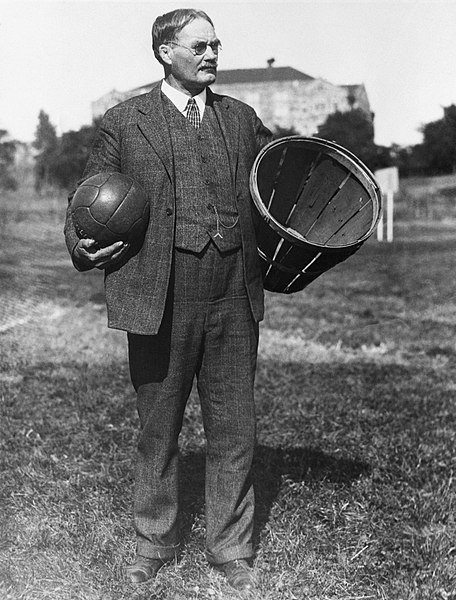The Scottish people or Scots are an ethnic group and nation native to Scotland. Historically, they emerged in the early Middle Ages from an amalgamation of two Celtic peoples, the Picts and Gaels, who founded the Kingdom of Scotland in the 9th century. In the following two centuries, Celtic-speaking Cumbrians of Strathclyde and Germanic-speaking Angles of Northumbria became part of Scotland. In the High Middle Ages, during the 12th-century Davidian Revolution, small numbers of Norman nobles migrated to the Lowlands. In the 13th century, the Norse-Gaels of the Western Isles became part of Scotland, followed by the Norse of the Northern Isles in the 15th century.
St. Kildans sitting on the village street Victorian-era Property of the National Trust for Scotland taken in 1886.
The Covenanters were members of a 17th-century Scottish religious and political movement
Scottish-born American industrialist and philanthropist Andrew Carnegie
James Naismith, the inventor of basketball.
Scots is an Anglic language variety in the West Germanic language family, spoken in Scotland and parts of Ulster in the north of Ireland. Most commonly spoken in the Scottish Lowlands, Northern Isles, and northern Ulster, it is sometimes called Lowland Scots to distinguish it from Scottish Gaelic, the Goidelic Celtic language that was historically restricted to most of the Scottish Highlands, the Hebrides, and Galloway after the sixteenth century; or Broad Scots to distinguish it from Scottish Standard English. Modern Scots is a sister language of Modern English, as the two diverged independently from the same source: Early Middle English (1100–1300).
Statue of Robert Burns in Canberra, Australia
Lufe God abufe al and yi nychtbour as yi self ("Love God above all and thy neighbour as thyself"), an example of Early Scots, on John Knox House, Edinburgh
William Wye Smith's The New Testament in Braid Scots







